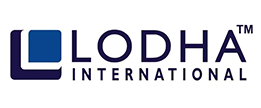Get in touch! +91 9687731331 | +91 9687631331 | info@lodhapharma.com
Advanced Technologies in Bottle Washing Machines
Bottle washing machines are essential in industries where cleanliness and hygiene are of utmost importance. They remove dirt, residue, and contaminants from bottles, ensuring that they are suitable for packaging and safe for consumers. Over the years, advancements in technology have revolutionized the bottle washing process, making it more efficient, environmentally friendly, and cost-effective.
Traditional Bottle Washing Methods
Traditionally, bottle washing involved manual labor and basic mechanical processes. Bottles were washed using brushes, sprayers, or submerged in cleaning solutions. While these methods were effective to some extent, they had limitations in terms of consistency, thoroughness, and labor requirements. The need for advanced technologies led to the development of new bottle washing techniques.
Ultrasonic Cleaning Technology
One of the most significant advancements in bottle washing machines is the integration of ultrasonic cleaning technology. Ultrasonic waves create high-frequency pressure waves that produce microscopic bubbles in the cleaning solution. These bubbles implode near the bottle's surface, generating intense cleaning action that reaches every nook and cranny. Ultrasonic cleaning technology ensures thorough cleaning, even in complex bottle shapes and hard-to-reach areas.
High-Pressure Jet Cleaning
High-pressure jet cleaning systems use powerful jets of water or cleaning solutions to remove dirt and contaminants from bottles. The high-pressure stream effectively dislodges particles and residues, leaving the bottles clean and ready for the next stage of production. This technology is particularly useful for removing stubborn stains and dried substances from bottle surfaces.

Air Rinsing Systems
Air rinsing systems have gained popularity due to their efficiency and water-saving capabilities. Instead of using water for rinsing, these systems use compressed air to blow away debris and particles from the bottles. Air rinsing not only saves water but also reduces the overall washing time, making the process faster and more economical.
Advanced Drying Techniques
Proper drying is crucial to prevent the growth of bacteria or mold in washed bottles. Advanced bottle washing machines incorporate innovative drying techniques such as hot air drying, infrared drying, or vacuum drying. These methods ensure that the bottles are completely dry before they move on to the next production stage, maintaining their hygiene and preventing contamination.
Automated Inspection Systems
To guarantee the quality and integrity of the washed bottles, automated inspection systems are integrated into modern bottle washing machines. These systems use cameras, sensors, and advanced algorithms to detect any defects, such as cracks, chips, or foreign particles, in the bottles. Automated inspections eliminate human error and ensure that only bottles of the highest quality proceed to the packaging stage.
Integration of IoT and Machine Learning
The integration of Internet of Things (IoT) technology and machine learning algorithms has brought a new level of intelligence to bottle washing machines. IoT connectivity allows these machines to gather real-time data and exchange information with other devices and systems. Machine learning algorithms analyze this data to optimize the washing process, adjust based on bottle type and condition, and detect patterns that can improve efficiency and performance over time.
Reduced Water and Energy Consumption
Sustainability and resource conservation have become significant concerns in modern manufacturing processes. Advanced bottle washing machines address these concerns by incorporating features that minimize water and energy consumption. Water recycling systems filter and reuse water, reducing overall water usage. Energy-efficient components and optimized processes further contribute to minimizing environmental impact and operating costs.
Enhanced Efficiency and Productivity
Advanced technologies in bottle washing machines have significantly increased efficiency and productivity. With automated processes, consistent cleaning parameters, and reduced downtime for maintenance, these machines can handle larger volumes of bottles in less time. This enhanced efficiency allows industries to streamline their production lines and meet increasing market demands effectively.
Improved Bottle Quality
The quality of washed bottles is of utmost importance to industries that rely on them for packaging products. Advanced bottle washing technologies ensure that bottles are thoroughly cleaned, free from contaminants, and ready for filling and labeling. This not only maintains product integrity but also enhances consumer satisfaction and reduces the risk of product recalls or customer complaints.
Cost-Effectiveness and Return on Investment
While the initial investment in advanced bottle washing machines may be higher, they offer significant long-term cost savings. The improved efficiency, reduced water and energy consumption, and minimized labor requirements result in a favorable return on investment (ROI) over time. Additionally, enhanced quality and productivity lead to higher customer satisfaction and increased market competitiveness.
Conclusion
The evolution of bottle washing machines has been driven by the need for improved hygiene, efficiency, and sustainability. Advanced technologies such as ultrasonic cleaning, high-pressure jet cleaning, air rinsing systems, and automated inspection have transformed the bottle washing process. Integration of IoT and machine learning, reduced resource consumption, and enhanced productivity further contribute to the benefits bottle washing machines offer. As industries continue to prioritize cleanliness and quality, the adoption of advanced bottle washing technologies will undoubtedly play a crucial role in meeting these standards.

